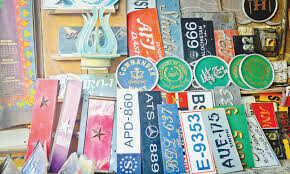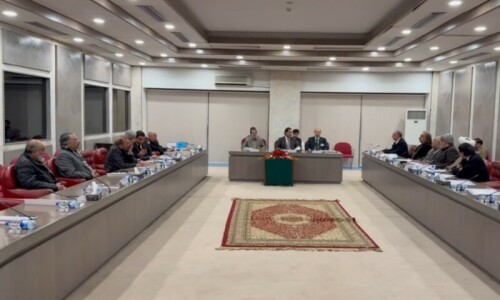KARACHI: “The incidents of intolerance in society are not as important as is the response to them of the civil society,” said journalist Ghazi Salahuddin. He also laid stress on the response determining the true strength, or weakness, of a society. This was shared at a roundtable discussion held on Thursday titled ‘The role of media in promoting peace and harmony’.
Organised by the Rumi Forum, which was founded in 1999 to foster intercultural dialogue and stimulate thinking, the purpose of the discussion was to bring together opinion builders popular in mainstream Pakistani media and allow an exchange of ideas on how the media could fight for a more multicultural coexistence.
Academic and former senior analyst at Channel 24 Huma Baqai spoke about how media and national security go together.
“One such example I would like to put forth is the Sept 6 transmission on all TV channels which made me feel as if Pakistan was at war with India, or we were going to war. Almost none of those on television had the courage to come out and say that we had initiated a wrong war which put Pakistan on the path of economic decline.”
She did highlight a few examples of the print media which analysed the war more honestly and how 1965 continues to haunt the country even today. Broadcaster Wusatullah Khan asked those present that in the absence of the modern media, who else was responsible for encouraging peace and harmony in society. “Out of sheer convenience we do not hold the civil society or the establishment as responsible for the act of encouraging peace in society.”
Zulfiqar Ali Shah from Hot FM 105 took this debate forward and focused on how the radio could make contributions towards making society more pluralistic.
Uzma Alkarim, news anchor at Geo TV and also head of their gender sensitivity department, spoke about the lacking of the media in making Pakistan more tolerant.
For her it was important to not allow a skewed, stereotypical image of people on air and show more characters on television belonging to different religious minorities.
“We need to seriously calculate the impact of what is said and screened on television and also identify all those who have corrupted the screen.”
Congenital flaws in the media, coupled with a lack of professionalism and ethical standards were some of the issue raised at the discussion.
Panellists agreed that the media could shape the discourse and make the society more tolerant and harmonious with the help of civil society.
Published in Dawn, December 18th, 2015














































Dear visitor, the comments section is undergoing an overhaul and will return soon.